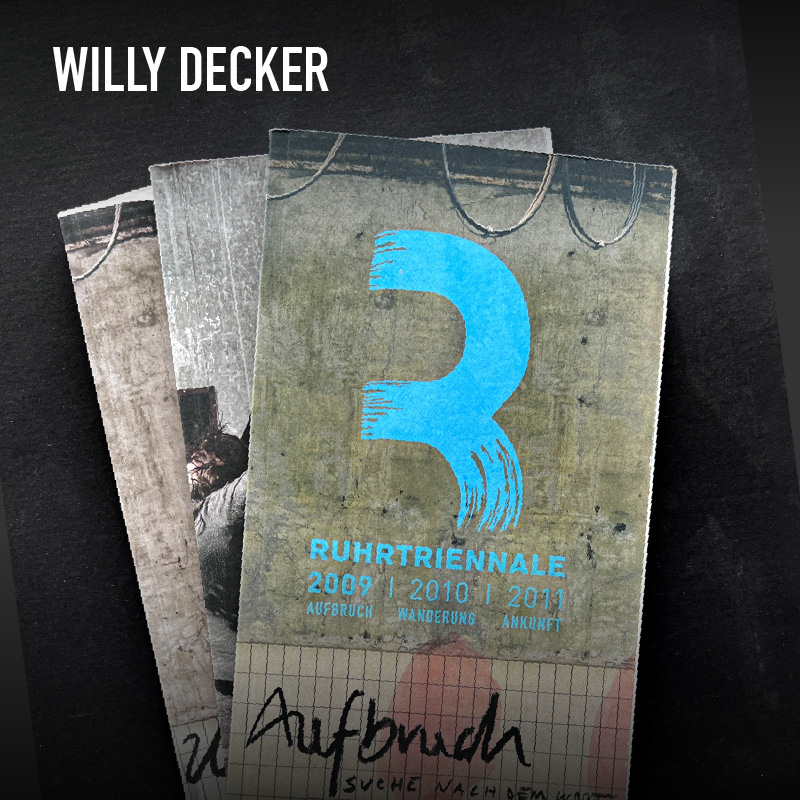Ruhrtriennale 09-11

Background information on the Triennial
The Ruhrtriennale follows its claim of permanent renewal by electing music theater director Willy Decker as its third artistic director from 2009-2011. The self-confessed Buddhist is the first festival director to also present his own productions. As if written by hand, the word »Urmomente« and a logo painted as if by a Zen master appear at the Ruhrtriennale. Decker precedes each of the three years with a word: departure – migration – arrival. Departure reflects Judaism, Migration reflects Islam, and Arrival reflects Buddhism. In the years 2009-2011, which are accompanied by spirituality, many things seem distant and unknown: Dervishes, rituals and ceremonies, the mysticism of the Sufi. Willy Decker’s production of Arnold Schoenberg’s Moses und Aron in the Jahrhunderthalle Bochum, with the participation of Chorwerk Ruhr and the Bochumer Symphoniker, succeeds in opening the 2009 festival. The story of the suffering of the Jew Hiob, based on Josef Roth, is certainly one of director Johan Simons’ most beautiful productions. In Dritte Generation, ten young players from Germany, Israel and Palestine discuss their origins. Yael Ronen stages them sparingly and directly. Jordi Savall has put together a special concert for the Ruhrtriennale with Jewish and Palestinian musicians and texts about the dramatic history of a special city: Jerusalem. Die Stadt der zwei Frieden. In the Maschinenhalle Zweckel Gladbeck, Sing für mich, Tod – ein Ritual for the composer Claude Vivier can be experienced. Vivier’s life and work revolved around loneliness, fear and the search for love. A fictional land far away, far from any time – that is Autland. In this music theater piece, Johannes Ockeghem’s canon for 36 voices from the 15th century meets music of the present time by Sergei Nevsky. From order to chaos to sensory overload.








